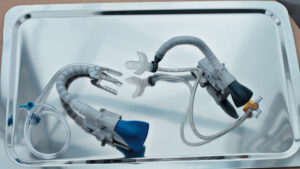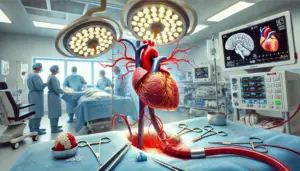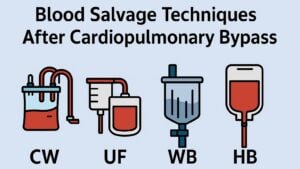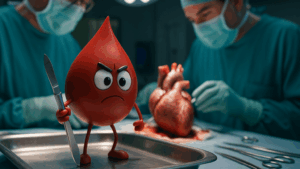Introduction: The evidence for using del Nido cardioplegia protocol in high-risk patients with reduced ejection fraction undergoing isolated coronary surgery is insufficient.
Methods: The institutional database was searched for isolated coronary bypass procedures. Patients with ejection fraction < 40% were selected. Propensity matching (age, sex, infarction, number of grafts) was used to pair del Nido (Group 1) and cold blood (Group 2) cardioplegia patients. Investigation of biomarker release, changes in ejection fraction, mortality, stroke, perioperative myocardial infarction, composite endpoint (major adverse cardiac and cerebrovascular events), and other perioperative parameters was performed.
Results: Matching allowed the selection of 45 patient pairs. No differences were noted at baseline. After cross-clamp release, spontaneous sinus rhythm return was observed more frequently in Group 1 (80% vs. 48.9%; P=0.003). Troponin values were similar in both groups 12 and 36 hours after surgery, as well as creatine kinase at 12 hours. A trend favored Group 1 in creatine kinase release at 36 hours (median 4.9; interquartile range 3.8-9.6 ng/mL vs. 7.3; 4.5-17.5 ng/mL; P=0.085). Perioperative mortality, rates of myocardial infarction, stroke, or major adverse cardiac and cerebrovascular events were similar. No difference in postoperative ejection fraction was noted (median 35.0%; interquartile range 32.0-38.0% vs. 35.0%; 32.0-40.0%; P=0.381). There was a trend for lower atrial fibrillation rate in Group 1 (6.7% vs. 17.8%; P=0.051).
Conclusion: The findings indicate that del Nido cardioplegia provides satisfactory protection in patients with reduced ejection fraction undergoing coronary bypass surgery. Further prospective trials are required.
Keywords: Biomarkers; Cardiopulmonary Bypass; Creatine Kinase; Extracorporeal Circulation; Myocardial Infarctation.







